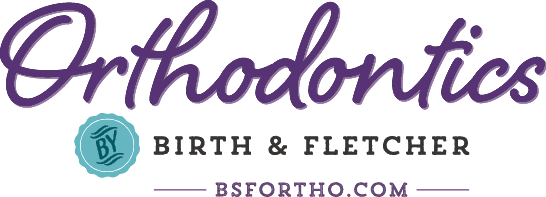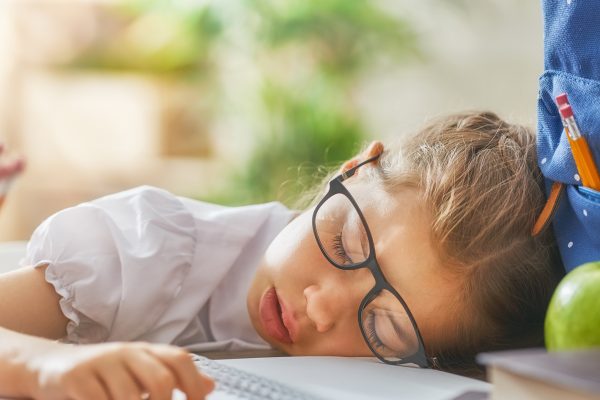
Protecting Your Child’s Health From Sleep Apnea
Every parent wants their children to be healthy, but health issues like sleep apnea may get in the way. Pediatric sleep apnea can cause your child to feel tired during the day, resulting in decreased academic marks and social interactions.
While children can sometimes outgrow their sleep apnea symptoms, the condition may continue into their adult years. Sleep apnea can affect children just as much as it affects adults, which is why seeking an accurate diagnosis and effective treatment is so vital to your child’s health and wellbeing.
What Causes Sleep Apnea in Children?
A few common causes of pediatric sleep apnea include the following:
Childhood Obesity
Just like with adults, OSA (obstructive sleep apnea) can be caused by narrowing of the airways due to excess body weight in the throat area. According to The BMJ, childhood obesity in the United States rose to 22 percent in August of 2020. Helping to keep your child at a healthy weight can significantly decrease their risk of developing sleep apnea.
Neurological Disorders
According to a study done for Developmental Medicine and Child Neurology, children with neurological disorders such as cerebral palsy, down syndrome, and epilepsy are at much higher risk of developing sleep apnea and sleep disordered breathing.
Neurological disorders such as these can encourage children to sleep on their backs, making it easier for their tongue to fall back into their throat and obstruct their airways. Neurological disorders can also cause central sleep apnea, in which signals aren’t being sent from the brain to the lungs to breathe during sleep.
Tonsillitis
One of the most common causes of obstructive sleep apnea in children is enlarged tonsils and adenoids. Also called tonsillitis, this condition can block airways and cause episodes of decreased oxygen intake during sleep.
Micrognathia
Also known as micrognathia, smaller jaws can make the tongue more likely to fall into the back of the throat, obstructing the airways and depriving the child of oxygen while they sleep.
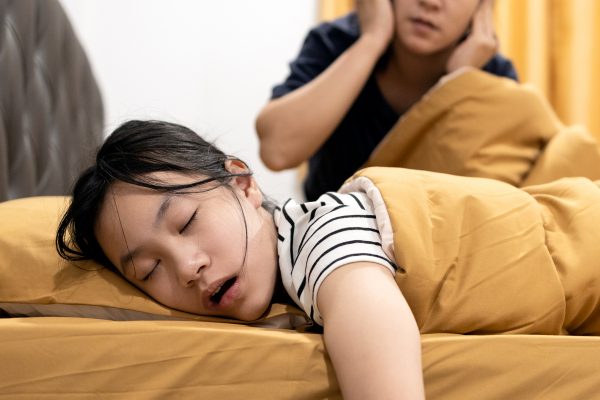
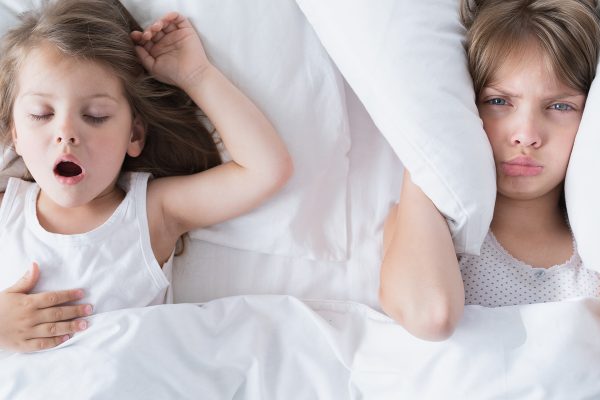
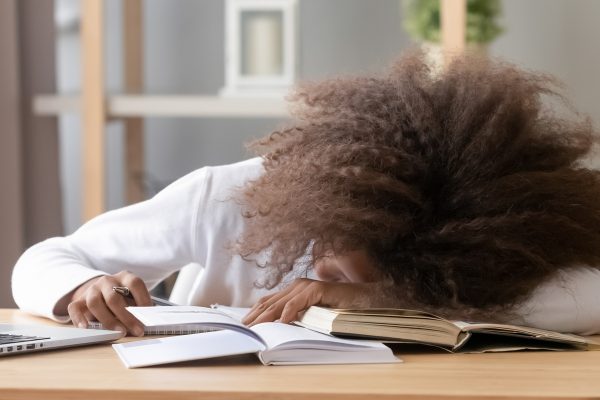
Signs of Sleep Apnea
Symptoms of pediatric sleep apnea can include:
- Snoring
- Restless sleeping and sleeping in unusual positions
- Pauses in breathing
- Snorting, coughing, and choking during sleep
- Waking up gasping for breath
- Daytime fatigue and behavioral issues
- Increase in body weight without dietary changes
- Sleep walking
- Bed wetting
- Night terrors
- Nighttime sweating
- Mouth breathing
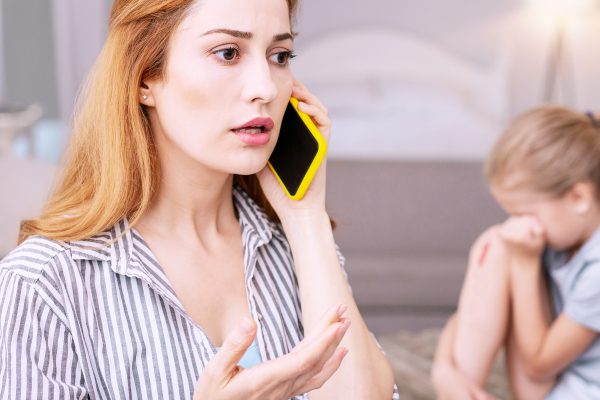
What To Do If You Believe Your Child Has Sleep Apnea
If you believe your child has exhibited symptoms of sleep apnea, you should first speak to your pediatrician. Once your child’s pediatrician has confirmed that sleep apnea is the likely culprit, they can recommend you to a sleep apnea specialist like Dr. Sheila Birth.
You can schedule an appointment at our Fort Worth office by dialing (817) 502-9103. From there, Dr. Birth will probably recommend a sleep study be conducted to properly diagnose your child before their treatment begins.
Safe Treatment For Pediatric Sleep Apnea
Dr. Birth offers a variety of treatments tailored to meet your child’s unique needs. A few common treatments Dr. Birth offers to her pediatric sleep apnea patients includes:
Oral Appliances
Oral appliances are custom-made devices that fit over your child’s teeth and can be worn comfortably while they sleep. They reposition the jaw, which opens up the airways and allows your child to breathe more easily.
Nasal Steroids
Nasal steroids work by reducing the size of tissues in upper airway passages. This helps prevent these tissues from obstructing the airways, reducing the symptoms of sleep apnea.
Weight Loss
Losing weight can help improve breathing around the clock by reducing pressure due to excess fat around the lungs, diaphragm, neck, and throat.
Oral Surgeries
Certain oral surgeries can remove excess tissues from inside the throat, such as uvulopalatopharyngoplasty (UPPP) and removal of the adenoids and tonsils (adenoidectomy and tonsillectomy). These surgeries can be highly effective at treating sleep apnea.
Rest assured that surgery is only recommended in cases of severe OSA. Dr. Birth will review the entirety of your child’s medical history and evaluate their current level of health before she recommends going forward with surgical procedures.

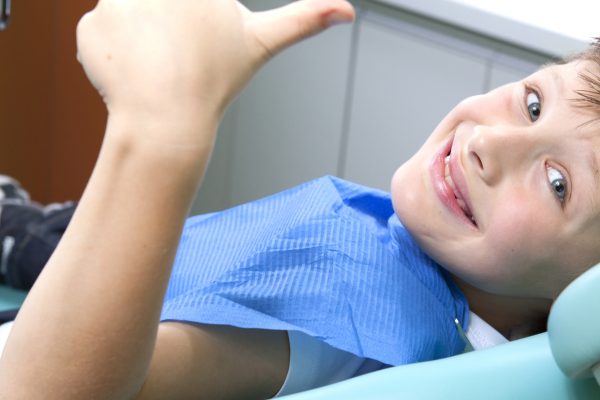
Help Your Child Sleep Soundly
While some children outgrow their sleep apnea symptoms, others may be dealing with apneic episodes well into their adult years. Even if your child outgrows their sleep apnea, the disorder can have profound consequences in terms of energy level, behavior, and learning.
Don’t let your child’s sleep apnea symptoms progress. Give your child a restful night’s sleep with a visit to Dr. Sheila Birth today. Call our Fort Worth office by dialing (817) 502-9103, or fill out the contact form below.
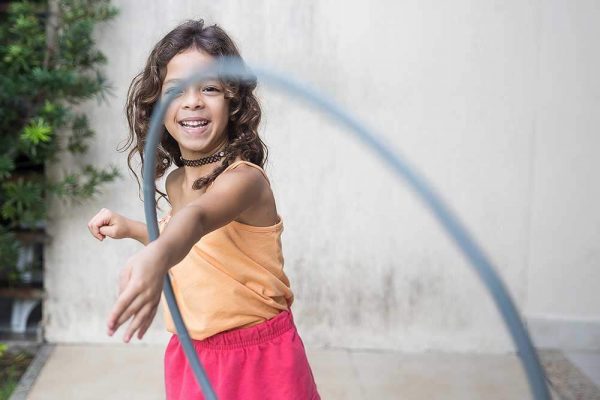
Frequently Asked Questions
How do you diagnose children with sleep apnea?
During either test, a physician who specializes in sleep disorders will monitor their vital signs and sleep disturbances. Once your child receives a diagnosis, our dental team then works with the results of the test to give your child the most effective treatment possible.
